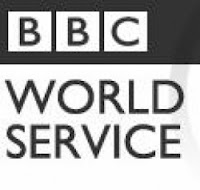There should be a feel good factor in the way social media has shaken the bedrock of global politics in the recent months. From the wiki leaks that embarrassed governments by tapping on diplomatic cables to the revolutionary demonstrations in the Middle East, these events have one common thread underlining them: the power of the internet to spark controversies and it's ability to mobilise large scale protests. Surprisingly, when it came to the protests in Tunisia the main stream media took time to get into grips with the situation, whilst hints of unrest was already brewing on Twitter soon after Bouazizi ,the vegetable vendor, who later became an immortal face of the protests set himself on fire.
The protests across the Middle East and North Africa have another powerful element to it. They are being lead by the youth, who are actively using social media tools like Facebook, Twitter, blogs and You Tube to mobilise the crowd. At the peak of the revolution in Egypt, 87, 293 signed up the Facebook page “We are all Khalid Said”( Khalid Said, a 28-year-old Egyptian from the coastal city of Alexandria, Egypt, was tortured to death at the hands of two police officers became a symbol of the protestors). Later, Wael Ghonim, the Egyptian-born Google marketing executive, who first played a role in organising the opposition through Facebook, told the American audiences that without Facebook and Twitter their revolution "would never have happened".
The political developments in the Middle East indicates how the world is going to be shaped in the coming years as cyber savvy generation become more conscious of their political and social rights and take centre stage in making their voices heard on national and international issues.
Let’s look at the positive aspects. According to the CIA World Factbook, more than 1.7 billion people on earth today are between 15 and 30 years of age, with an average age of 28. This number of this Gen Y or Millennia generation, as it is known are set to grow phenomenally within the next few years. Clearly with further internet penetration and with more people becoming literate, the access to information for the vast majority of the people will be far greater than any point of time in human history.
These changes will structurally affect the way the governments and businesses communicate. For businesses and brands, marketing strategies will have to undergo a radical shift. Their messages have to be fragmented, based on understanding of the cultural dynamics of its targeted audience. For example, the outlook of a teenage girl in Shanghai and Paris using a Louis Vuitton can be similar, but the Chinese consumer has to be approached in ways that makes her see Louis Vuttion as something that fits into her realm of things. In other words, in a flat world, it will be bit tricky to imagine that nationalism or individualism will disappear. One to one communication will be the need of the day; brands would have to increasingly act as services.
 At the political level, governments in democracies will have to become more transparent. In many ways, exchange of information, knowledge and solidarity on issues of global importance will be much stronger. It need not be based on a TV or radio show but based on communities on internet with much sophisticated tools. Most importantly, hypocrisy of leaders, organisations and others that tend to safeguarded the interests of despots and oppressors with murky business deals will be increasingly questioned.
At the political level, governments in democracies will have to become more transparent. In many ways, exchange of information, knowledge and solidarity on issues of global importance will be much stronger. It need not be based on a TV or radio show but based on communities on internet with much sophisticated tools. Most importantly, hypocrisy of leaders, organisations and others that tend to safeguarded the interests of despots and oppressors with murky business deals will be increasingly questioned.Finally, as seen in Egypt, the internet can be a catalyst in a change. An illiterate man many not be able to use Facebook, but he can surely understand a video on Youtube. This clearly demonstrates that technology can be used in various ways for the benefit of the masses. Today, only 30 percent of the global population use internet, the figure will double in next few years. To make that happen it is the responsibility of the digital natives as they come to power to make policies and take actions to uplift the poor in the society. Technology in the 21st century should be used to create a fairer and a better world.


